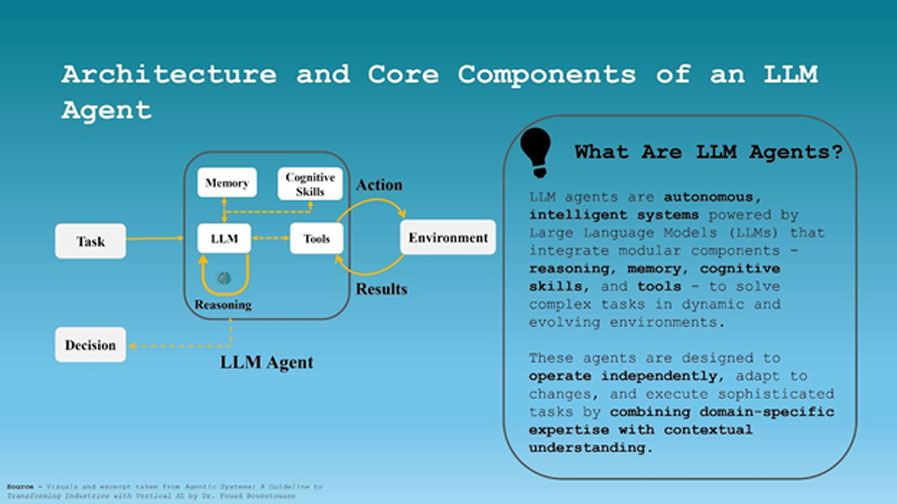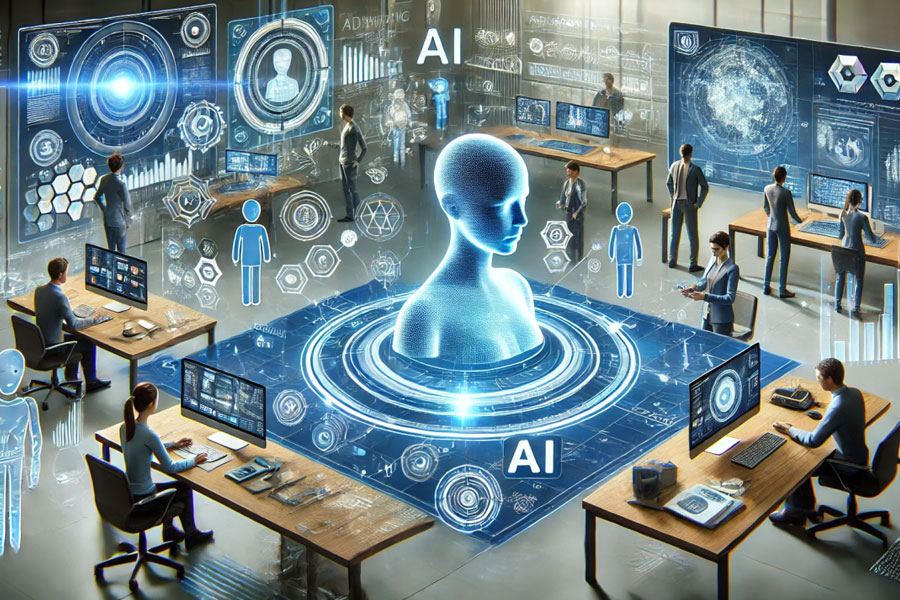What if your workflows are not just automated but intelligently managed by systems that think, adapt, and learn like a digital partner?
That world is already here, and it’s powered by agentic systems.
These systems are revolutionizing industries by bringing context, adaptability, and real-time problem-solving to workflows that were once static and manual.
The journey from SaaS to Agentic Systems
For years, SaaS (Software as a Service) platforms have dominated business operations, right?
They’ve been the go-to for standardizing processes, managing workflows, and scaling operations.
But here’s the catch – these tools are great for predictable (and sometimes, mundane) tasks but crumble under pressure when things get complex.
Take an example – an inventory management tool might track stock levels and reorder supplies when you’re running low. But can it adjust to a sudden spike in demand during a viral trend or predict supply chain disruptions caused by a snowstorm? Not quite. That’s the limitation of SaaS platforms – they’re static and reactive, not adaptive.
This is where agentic systems shine. They are designed to not only understand the present but also anticipate what’s coming, thanks to advanced AI capabilities.
So, what exactly are agentic systems?
Agentic systems are a type of intelligent framework powered by AI agents that operate autonomously (no human intervention required).
They can analyze, adapt, and act based on real-time data. Think of them as software that doesn’t just follow rules but evolves with your needs.
For example:
- In healthcare, an agentic system could prioritize patient treatments based on real-time vitals, ensuring critical cases are addressed first.
- In e-commerce, it might analyze buying behaviors and dynamically adjust pricing or inventory to match demand – all without human intervention.
They’re like having a digital team member who never sleeps, learns fast, and always delivers.
At the heart of these systems are LLM agents, the true driving force behind their intelligence and adaptability.
What are LLM agents?
LLM (Large Language Model) agents are advanced AI entities designed to operate autonomously and intelligently in dynamic environments.

These agents are powered by LLMs and integrate key components like reasoning (for decision-making), memory (to retain and recall context), cognitive skills (to tackle complex tasks), and tools (to interact with external systems).
Unlike static workflows that follow predefined steps, LLM agents adapt to changing scenarios, refine their actions, and deliver sophisticated, contextually relevant solutions.
For instance, an LLM agent in customer support could not only respond to queries but also learn from interactions to improve over time.
Core components of agentic systems
Memory – To remember and utilize context.
Reasoning Engines – To make logical, goal-oriented decisions.
Tools – To interact smoothly with external systems and environments.
These core elements make agentic systems robust, flexible, and capable of tackling even the most dynamic challenges with precision.
Why should you care about agentic systems?
Well, given that agentic systems are about to make SaaS redundant, it’s important to keep track of this incredible new arena of tech.
1. Industry-specific expertise
Agentic systems aren’t one-size-fits-all. They’re designed with your industry in mind, whether it’s healthcare, finance, or manufacturing.
For instance, a financial agentic system can analyze market trends and provide real-time investment recommendations, saving hundreds of hours of manual effort.
2. Dynamic adaptability
Unlike traditional tools, agentic systems can process live data and respond to changes in real-time.
This adaptability empowers businesses to manage supply chain disruptions, adjust to market trends, and optimize workflows like never before.
For example, just picture a logistics company rerouting deliveries based on sudden weather changes. That’s the power of real-time adaptability.
3. End-to-end automation
Agentic systems don’t just automate tasks – they own them. These systems take care of everything from analyzing data to making decisions and executing them all on their own.
4. Collaboration with humans
Worried about AI replacing humans? Don’t be.
These systems enhance human capabilities by taking over repetitive tasks and providing insights of all kinds, so you can make smarter decisions, faster.
Want to dive deeper?
If you’re curious to explore agentic systems in detail, we suggest PeritusHub’s leading AI expert Dr. Fouad Bousetouane’s comprehensive report, Agentic Systems: A Guideline to Transforming Industries with Vertical AI, as your ultimate resource.
Why now?
With advancements in LLMs and frameworks like OpenAI’s Assistants API, Microsoft’s AutoGen, and Google’s Vertex AI Agent Builder, agentic systems are more accessible than ever.
Industries worldwide are exploring their potential to transform operations and deliver unprecedented efficiencies.
So, don’t miss out on the opportunity to be part of this AI revolution.
To make it easier, we can help you with building your own custom Agentic System!











